ARTICLE AD BOX

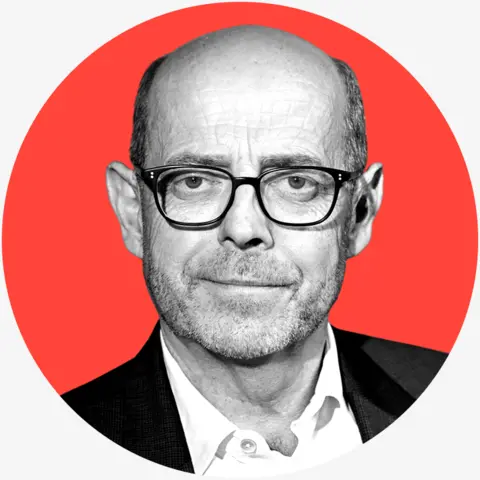
Nick Robinson
Today programme presenter
Reporting fromDelaware

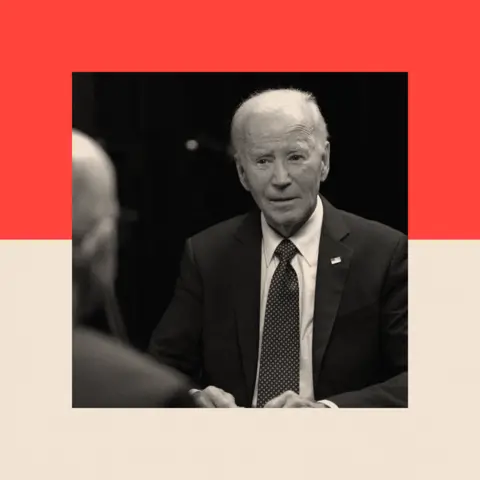 BBC
BBC
In an exclusive and remarkably candid interview - the first since he left office - Joe Biden discusses what he really thinks of his successor's first 100 days, plus his fears for the future if the Atlantic Alliance collapses
It is hard to believe that the man I greet in the Delaware hotel where he launched his political career more than half a century ago was the "leader of the free world" little over 100 days ago.
Joe Biden is still surrounded by all the trappings of power – the black SUVs, the security guys with curly earpieces, the sniffer dogs sent ahead to sweep the room for explosives. And yet he has spent the last three months watching much of what he believes in being swept away by his successor.
Donald Trump has deployed the name Biden again and again - it is his political weapon of choice. One recent analysis showed that Trump said or wrote the name Biden at least 580 times in those first 100 days in office. Having claimed that rises in share prices were "Trump's stock market" at work, he later blamed sharp falls in share prices on "Biden's stock market".
Until this week, President Biden himself (former presidents keep their titles after they leave office) has largely observed the convention that former presidents do not criticise their predecessors at the start of their time in office. But from the moment we shake hands it is clear that he is determined to have his say too.

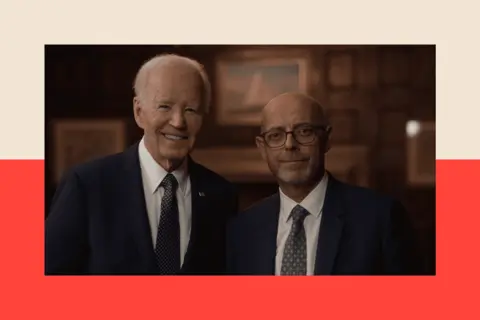
Biden calls Nato's promise to defend every inch of its territory "a sacred obligation"
In a dark blue suit, the former president arrives smiling and relaxed but with the determined air of a man on a mission. It's his first interview since leaving the White House, and he seems most angry about Donald Trump's treatment of America's allies - in particular Ukraine's president, Volodymyr Zelensky.
"I found it beneath America, the way that took place," he says of the explosive Oval Office row between Trump and Zelensky in February. "And the way we talk about now that, 'it's the Gulf of America', 'maybe we're going to have to take back Panama', 'maybe we need to acquire Greenland, 'maybe Canada should be a [51st state].' What the hell's going on here?
"What President ever talks like that? That's not who we are. We're about freedom, democracy, opportunity - not about confiscation."
After just over 100 action-packed days of Trump there was no shortage of targets for President Biden to choose from.
But his main concern appears to be on the international stage, rather than the domestic one: that is, the threat he believes now faces the alliance between the United States and Europe which, as he puts it, secured peace, freedom and democracy for eight decades.
"Grave concerns" about the Atlantic Alliance
Just before our interview, which took place days before the 80th anniversary of VE Day, Biden took a large gold coin out of his pocket and pressed it into my hand. It was a souvenir of last year's D-Day commemoration. Biden believes that the speech he delivered on that beach in Normandy is one of his most important. In it, he declared that the men who fought and died "knew – beyond any doubt – that there are things worth fighting and dying for".
I ask him whether he feels that message about sacrifice is in danger of being forgotten in America. Not by the people, he replies but, yes, by the leadership. It is, he says, a "grave concern" that the Atlantic Alliance is seen to be dying.
"I think it would change the modern history of the world if that occurs," he argues.
"We're the only nation in a position to have the capacity to bring people together, [to] lead the world. Otherwise you're going to have China and the former Soviet Union, Russia, stepping up."

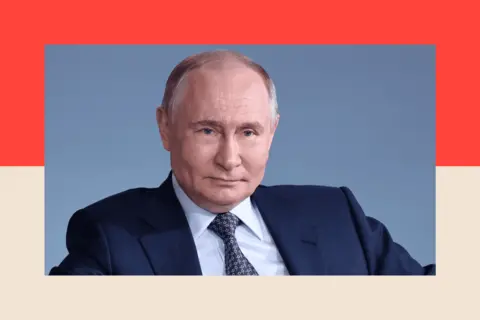 Reuters
Reuters
Biden argues that Trump's approach could send a dangerous message to Europe, suggesting it's time to give in to Russia
Now more than ever before that Alliance is being questioned. One leading former NATO figure told the BBC this week that the VE Day celebrations felt more like a funeral. President Trump has complained that the United States is being "ripped off" by her allies, Vice President JD Vance has said that America is "bailing out" Europe whilst Defence Secretary Pete Hegseth has insisted that Europe is "free-loading".
Biden calls the pledge all members of Nato - the Atlantic Alliance - make "to defend each and every inch of Nato territory with the full force of our collective power" a "sacred obligation".
"I fear that our allies around the world are going to begin to doubt whether we're going to stay where we've always been for the last 80 years," Biden says.
Under his presidency, both Finland and Sweden joined Nato - something he thinks made the alliance stronger. "We did all that - and in four years we've got a guy who wants to walk away from it all.
"I'm worried that Europe is going to lose confidence in the certainty of America, and the leadership of America in the world, to deal with not only Nato, but other matters that are of consequence."
Biden, the "addled old man"?
I meet President Biden in the place he has called home since he was a boy, the city of Wilmington in Delaware. It is an hour and a half Amtrak train ride from Washington DC, a journey he has been making for 50 years since becoming a Senator at the age of just 30. He has spent more years in government than any other president.
He was 82 when he left the Oval Office. His age has invited no end of scrutiny - an "at times addled old man" is how the journalists Jake Tapper and Alex Thompson describe him in their book, Original Sin: President Biden's Decline, Its Cover-Up, and His Disastrous Choice to Run Again.
His calamitous live TV debate performance last June prompted further questions, as Biden stumbled over his words, lost his thread mid-sentence and boasted, somewhat bafflingly, that "We finally beat Medicare!". He withdrew from the election campaign soon after.

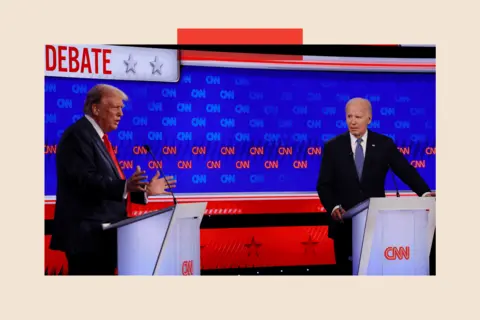 Reuters
Reuters
Biden's live TV debate performance last June raised questions as he stumbled over words and appeared to lose his train of thought
Today, Biden is still warm and charismatic, with the folksy charm that made him an election winner but he is a much slower, quieter and more hesitant version of the leader he was once. Meeting with him in person, I found it hard to imagine he could have served for another four years in the White House, taking him closer to the age of 90.
I ask Biden if he's now had to think again about his decisions last year. He pulled out of the presidential race just 107 days before election day, leaving Kamala Harris limited time to put together her own campaign.
"I don't think it would have mattered," he says. "We left at a time when we had a good candidate, she was fully funded.
"What we had set out to do, no-one thought we could do," he continues. "And we had become so successful in our agenda, it was hard to say, 'No, I'm going to stop now'... It was a hard decision."
One he regrets? Surely withdrawing earlier could have given someone else a greater chance?
"No, I think it was the right decision." He pauses. "I think that… Well, it was just a difficult decision."
Trump is "not behaving like a Republican president"
Biden says he went into politics to fight injustice and to this day has lost none of his appetite for the fight. Last year at the D-Day celebrations he warned: "We're living in a time when democracy is more at risk across the world than at any point since the end of World War Two."
Today, he expands on this: "Look at the number of European leaders and European countries that are wondering, Well what do I do now? What's the best route for me to take? Can I rely on the United States? Are they going to be there?"
"Instead of democracy expanding around the world, [it's] receding. Democracy - every generation has to fight for it."

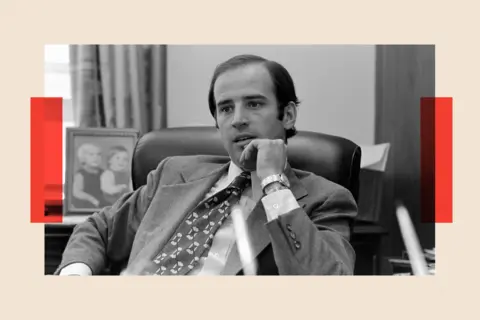 Penske Media via Getty Images
Penske Media via Getty Images
Biden says he went into politics to fight injustice
Speaking in Chicago recently, Biden declared that "nobody's king" in America. I asked him if he thinks President Trump is behaving more like a monarch than a constitutionally limited president.
He chooses his reply carefully. "He's not behaving like a Republican president," he says.
Though later in our interview, Biden admits he's less worried about the future of US democracy than he used to be, "because I think the Republican Party is waking up to what Trump is about".
"Anybody who thinks Putin's going to stop is foolish"
President Biden relished his role as the leading figure in Nato, deploying normally top secret intelligence to tell a sceptical world back in 2022 that Vladimir Putin was about to launch a full scale invasion of Ukraine.
Since taking office President Trump has charted a different course, telling Ukraine that it must consider giving up territory to Russia if it wants the war to end.
"It is modern day appeasement," Biden says of Trump's approach.
Putin, he says, sees Ukraine as "part of Mother Russia. He believes he has historical rights to Ukraine... He can't stand the fact that […] the Soviet Union has collapsed. And anybody who thinks he's going to stop is just foolish."
He fears that Trump's approach might signal to other European countries that it's time to give in to Russia.

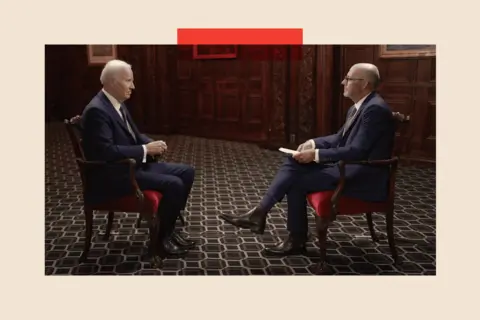
Biden on Ukraine: 'We gave them everything they needed to provide for their independence'
Yet Biden has faced accusations against him concerning the Ukraine War. Some in Kyiv and her allies, as well as some in the UK, claim that he gave President Zelensky just enough support to resist invasion but not enough to defeat Russia, perhaps out of fear that Putin would consider using nuclear weapons if cornered.
When Putin was asked point blank on TV this week whether he would use nuclear weapons to win the war, he declared that he hoped that they would "not be necessary," adding that he had the means to bring the war to what he called his "logical conclusion".
I point out to Biden that it has been argued that he didn't have the courage to go all the way to give Ukraine the weapons it needed - to let Ukraine win.
"We gave them [Ukraine] everything they needed to provide for their independence," Biden argues. "And we were prepared to respond more aggressively if in fact Putin moved again."
He says he was keen to avoid the prospect of "World War Three, with nuclear powers," adding: "And we did avoid it.
"What would Putin do if things got really tough for him?" he continues. "Threaten the use of tactical nuclear weapons. This is not a game or roulette."
Biden's belief in the Atlantic Alliance of the last living President born during World War Two is clearly undiminished.
When he first arrived in the Oval Office, Biden hung a portrait of America's wartime leader Franklin D. Roosevelt on the wall. He was born two and a half years after the defeat of the Nazis into the world FDR helped to create - a world of American global leadership and solidarity. But the United States voted to reject Biden's policies and values and instead to endorse Donald Trump's call to put America First.
The world is changing from what people like Joe Biden have taken for granted.
"Every generation has to fight to maintain democracy, every one," Biden says. "Every one's going to be challenged.
"We've done it well for the last 80 years. And I'm worried there's the loss of understanding of the consequences of that."
This interview broadcasts on BBC Radio 4's Today on 7 May. You can hear it later on BBC Sounds. Listen to the full version on Political Thinking with Nick Robinson: The Joe Biden One, also on BBC Sounds.
BBC InDepth is the home on the website and app for the best analysis, with fresh perspectives that challenge assumptions and deep reporting on the biggest issues of the day. And we showcase thought-provoking content from across BBC Sounds and iPlayer too. You can send us your feedback on the InDepth section by clicking on the button below.

 15 hours ago
8
15 hours ago
8
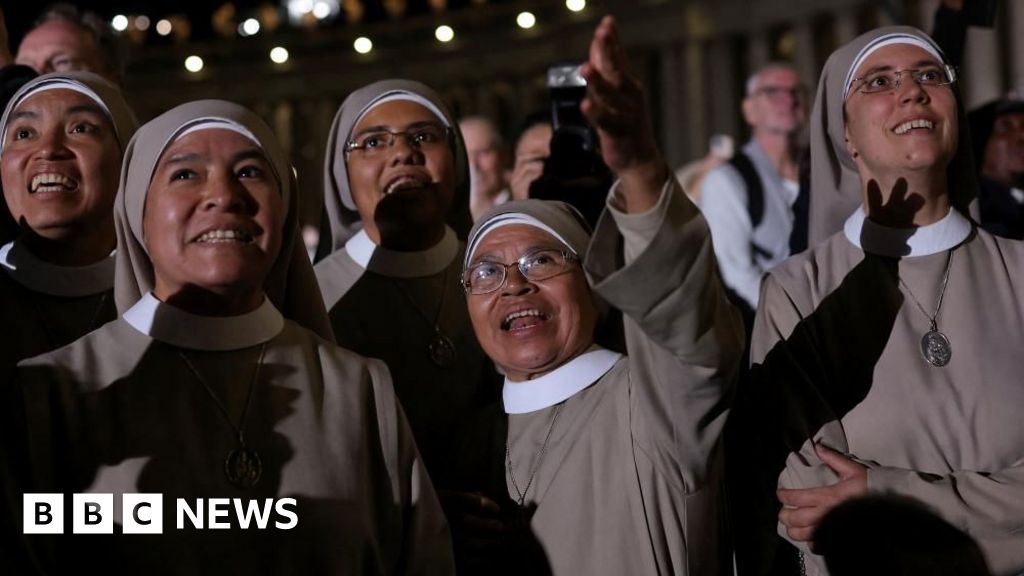







 English (US) ·
English (US) ·